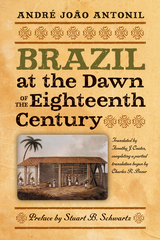

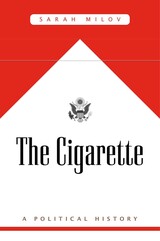
Los Angeles Times Book Prize Finalist
Winner of the Willie Lee Rose Prize
Winner of the PROSE Award in United States History
Hagley Prize in Business History Finalist
A Smithsonian Best History Book of the Year
“Vaping gets all the attention now, but Milov’s thorough study reminds us that smoking has always intersected with the government, for better or worse.”
—New York Times Book Review
From Jamestown to the Marlboro Man, tobacco has powered America’s economy and shaped some of its most enduring myths. The story of tobacco’s rise and fall may seem simple enough—a tale of science triumphing over corporate greed—but the truth is more complicated.
After the Great Depression, government officials and tobacco farmers worked hand in hand to ensure that regulation was used to promote tobacco rather than protect consumers. As evidence of the connection between cigarettes and cancer grew, scientists struggled to secure federal regulation in the name of public health. What turned the tide, Sarah Milov reveals, was a new kind of politics: a movement for nonsmokers’ rights. Activists took to the courts, the streets, city councils, and boardrooms to argue for smoke-free workplaces and allied with scientists to lobby elected officials. The Cigarette puts politics back at the heart of tobacco’s rise and fall, dramatizing the battles over corporate influence, individual choice, government regulation, and science.
“A nuanced and ultimately devastating indictment of government complicity with the worst excesses of American capitalism.”
—New Republic
“An impressive work of scholarship evincing years of spadework…A well-told story.”
—Wall Street Journal
“If you want to know what the smoke-filled rooms of midcentury America were really like, this is the book to read.”
—Los Angeles Review of Books
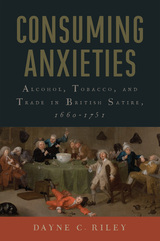
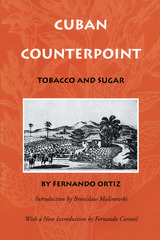
Ortiz presents his understanding of Cuban history in two complementary sections written in contrasting styles: a playful allegorical tale narrated as a counterpoint between tobacco and sugar and a historical analysis of their development as the central agricultural products of the Cuban economy. Treating tobacco and sugar both as agricultural commodities and as social characters in a historical process, he examines changes in their roles as the result of transculturation. His work shows how transculturation, a critical category Ortiz developed to grasp the complex transformation of cultures brought together in the crucible of colonial and imperial histories, can be used to illuminate not only the history of Cuba, but, more generally, that of America as well.
This new edition includes an introductory essay by Fernando Coronil that provides a contrapuntal reading of the relationship between Ortiz’s book and its original introduction by the renowned anthropologist Bronislaw Malinowski. Arguing for a distinction between theory production and canon formation, Coronil demonstrates the value of Ortiz’s book for anthropology as well as Cuban, Caribbean, and Latin American studies, and shows Ortiz to be newly relevant to contemporary debates about modernity, postmodernism, and postcoloniality.
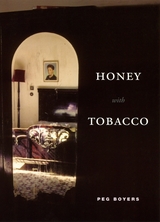
Pietà
This time the migraine came with a vision
bathed in night sweat:
I was sitting on the Eames chair,
your man’s body on my lap, legs
and arms white as casein draped over
mine, spilling onto the cassock, new sores
on your legs, dried blood
on your feet and hands,
from your chalk mouth
the words forgive me,
from mine, the impossible
no
Hard Bread,Peg Boyers’s debut poetry collection, with verse spoken in the imagined voice of the Italian writer Natalia Ginzburg, was widely praised for its inspired ventriloquism and its brilliant lyricism. In Honey with Tobacco, Boyers’s own intensely personal voice emerges in three strikingly distinctive variants. The first part of the book is the most explicitly autobiographical, bringing together poems that explore the poet’s Cuban American experience and a childhood marked by travel, the tropics, and varieties of disenchantment. The middle sequence of poems concerns a mother, a father, and a son, a postmodern holy family whose ordeals are evoked in a terse, terrifying narrative. In familiar tableaux drawn from the Bible that have inspired great works of art—the Annunciation, the Pieta, and Judgment Day—Boyers explores what it means in contemporary America to be “blessed among women” and whether and how art can contain grief. The final section of the book confronts age, desire, and regret in a series of personal poems that plumb baser human instincts and the speakers’ determination to dwell in darkness, when necessary, without abandoning the sacred.
Praise for Hard Bread:
“A great achievement of poetic voice . . . . It’s absolutely clear what these poems are ‘about,’ and they are unapologetic in their devotion to subject, clarity, precision, and accessibility.”—Steven Cramer, Poetry
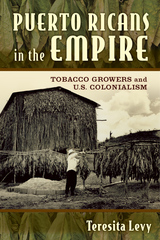
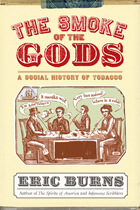
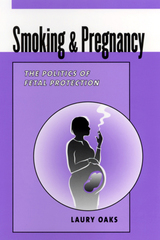
The 1966 edition of the leading medical textbook states that pregnant women can safely smoke half a pack of cigarettes a day. Yet today, women who smoke during pregnancy are among the most vilified figures in public health campaigns. Laury Oaks argues this shift is not due solely to medical findings indicating that cigarette smoking may harm the fetus. Also responsible are a variety of social factors that converged more than a decade ago to construct the demonized category of the “pregnant smoker.”
This book charts the emergence of smoking during pregnancy as a public health concern and social problem. Oaks looks at the emphasis public health educators place on individual responsibility, the current legal and social assertion of fetal personhood, the changing expectations of pregnant and prepregnant women, and the advent of antismoking campaigns. She explores how public health educators discuss “the problem” with one another, how they communicate with pregnant smokers, and how these women themselves understand the “risk” of fetal harm. Finally, Oaks discusses the various meanings of “objective” statistics on the effects of smoking on the fetus, exploring the significance of cultural context in assessing the relative importance of those numbers. She argues that rather than bombarding pregnant women with statistics, health educators should consider the daily lives of these women and their socioeconomic status to understand why some women choose to smoke during pregnancy. Without downplaying the seriousness of the health risks that smoking poses to women and their babies, the book supports new efforts that challenge the moral policing of pregnant smokers.
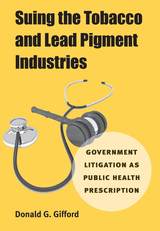
---David Owen, Carolina Distinguished Professor of Law, and Director of Tort Law Studies, University of South Carolina
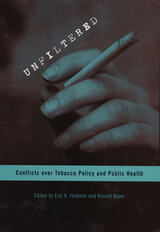
Tobacco, among the most popular consumer products of the twentieth century, is under attack. Once a behavior that knew no social bounds, cigarette smoking has been transformed into an activity that reflects sharp differences in social status.
Unfiltered tells the story of how anti-smoking advocates, public health professionals, bureaucrats, and tobacco corporations have clashed over smoking regulation. The nations discussed in this book--Australia, Canada, Denmark, France, Germany, Japan, the United Kingdom, and the United States--restrict tobacco advertising, tax tobacco products, and limit where smoking is permitted. Each is also struggling to shape a tobacco policy that ensures corporate accountability, protects individual liberty, and asserts the state's public health power.
Unfiltered offers a comparative perspective on legal, political, and social conflicts over tobacco control. The book makes a unique contribution to our understanding of how scientific evidence, global health advocacy, individual risk assessments, and governmental interests intersect in the crafting of tobacco policy. It features national case studies and cross-cultural essays by experts in health policy, law, political science, history, and sociology. The lessons in Unfiltered are crucial to all who seek to understand and influence tobacco policy and reduce tobacco-related mortality worldwide.
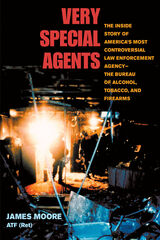
Moore's personal, from-the-hip history spans the long-running war against dons and drug dealers and covers agents' daring infiltration of the Ku Klux Klan, Hell's Angels, and other violent groups. He reveals the cutting-edge forensics work that helped crack the World Trade Center and Oklahoma City bombings and also provides an insider account of the raid on the Branch Davidians at Waco. Finally, Moore discusses the ATF's rivalry with the FBI and the political power games that impede the government's ability to fight crime.
READERS
Browse our collection.
PUBLISHERS
See BiblioVault's publisher services.
STUDENT SERVICES
Files for college accessibility offices.
UChicago Accessibility Resources
home | accessibility | search | about | contact us
BiblioVault ® 2001 - 2024
The University of Chicago Press









